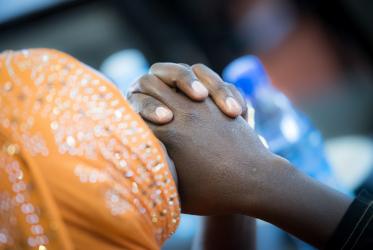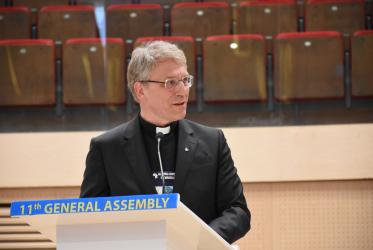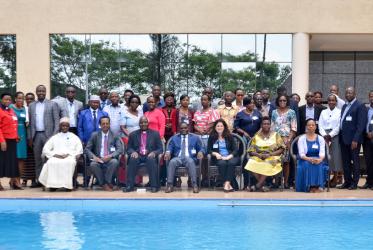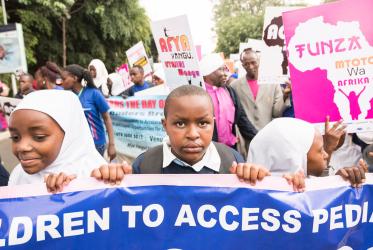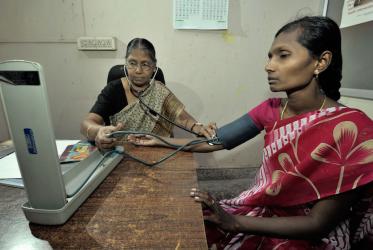Displaying 1 - 20 of 22
Theological education in Africa promotes social transformation
03 November 2022
Young Africans are eager to grapple with challenges
09 January 2020
WCC hones training on attitudes toward HIV treatment
06 December 2018
“Good healthcare a right, not a privilege,” says WCC-EAA
11 October 2017
“It’s time to be brave, to form diverse partnerships”
02 March 2017
“Health and healing for all people, that is the challenge”
28 February 2017
